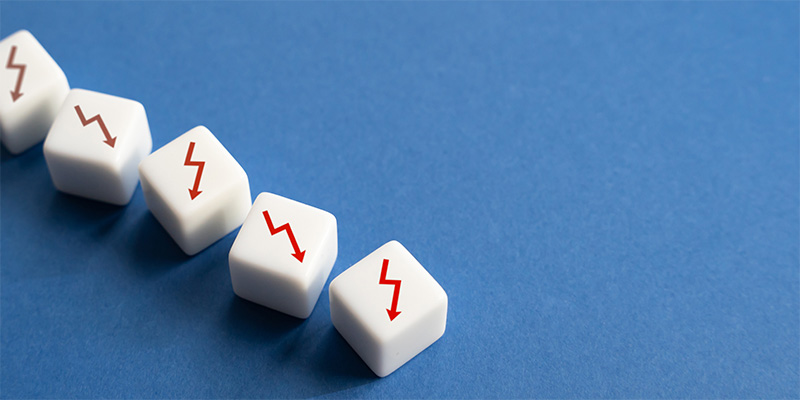
Don’t Light Your Money on Fire
I know a lot of people who have gone broke because they told themselves, “I can afford the monthly payment.”
It starts with the car.
They don’t buy the $15,000 used car they could pay cash for. Instead, they buy a new car for $30,000. Maybe they put $5,000 down and finance the rest through a five-year loan.
Because, hey, the payments are so low!
Meanwhile, they don’t give any thought to the interest rate. We’ll say it’s 6.58%, which is the average rate on an auto loan right now. And they don’t consider the roughly $4,400 they’re going to pay in interest over the life of the loan.
During the whole transaction, the only number anyone mentions out loud is the $490 monthly payment, which seems doable enough.
Fancy Appliances
Then the dishwasher goes caput. So they drop into Lowe’s to buy a $300 replacement and walk out with a $1,200 Bosch dishwasher with all the bells and whistles.
But they don’t pay cash for it. Because the sales guy mentioned a two-year loan. Again, no one says anything about the interest rate… just the monthly payments, which are “only $52 a month.”
This pattern goes on and on until they’re financing $90 purchases off the Home Shopping Network.
Meanwhile, the sum of these “doable” monthly payments has grown bigger and bigger. And they find themselves under an unmanageable heap of debt.
|
Do NOT buy a single stock until you watch this urgent market interview featuring Jared Dillian. Click here to learn the single most important move you need to make to protect your retirement portfolio now. (From our partners) |
Every Dollar Spent on Interest Is a Waste
Salespeople do not care if you can afford the car, or the dishwasher, or whatever else you are buying. All they care about is making the sale—it’s how they make a living—and whether you’ll make the monthly payments on time. That’s it.
So no salesperson will ever bring up the interest rate on a loan. And they won’t highlight the total amount you’re going to pay in interest over the life of that loan.
You have to ask.
And you have to factor the answer into your decision. Because every dollar you spend in interest is a dollar that you are lighting on fire. It’s a complete and total waste.
Yet the average person spends 10%–20% of their income on interest every year. This is a big reason people never get ahead.
That is not how financially successful people operate. They pay cash. And if they can’t afford something, they wait until they can.
“But I Got 0.0% APR Financing!”
What if the sales guy offers you 0.0% financing? Is it okay to finance a car or some other purchase then?
My answer is, “No.”
Because it’s still debt. You still have to make the payments. And, if you run into trouble, the repo man can still take your car away.
Remember, debt and risk are the two main drivers of financial stress. These are the things that keep people up at night.
The Exception to the Rule
Really, the only thing it’s okay to finance is your house. And by that, I mean your primary residence, not the vacation home you’ve always been tempted to buy.
Even then, you want to put down as much cash as you can and pay off your mortgage as quickly as possible.
People fall into a common trap here. They think they can come out ahead by playing the market, especially with mortgage rates at historic lows.
They look at the 3.05% interest rate on their 30-year mortgage and think, “I can beat that in the stock market.” So, they buy stocks instead of aggressively paying down their mortgages.
They forget that 90% of people lose money in the stock market.
Please, pay cash for your house if you can. At the very least, pay off your mortgage as quickly as possible.

Jared Dillian
P.S. If you haven’t seen my latest interview with Mauldin Economics publisher Ed D’Agostino, I encourage you to check it out. We cover today’s market sentiment, whether or not we’re in a new bull market, and Fed policy. Plus, “de-risking” your portfolio and positioning yourself for the can’t-miss trade of the summer. To watch the video, click here. Or, if you prefer, you can read the transcript.
|

Use This Strategy to “De-Risk” Your Portfolio
When most people buy stocks, they find cheap ones and wonder why their trades don't work.

Your Top-Down Approach to Investing for Long-Term Success
The stock market is no place for amateurs.

This Number Dictates How Much You Can Save
The other night, my wife and I went out for dinner. When it came time to order dessert, I couldn’t help but think, “Is it really worth shelling out $13 for a piece of cake when we have other expenses, like building a big house?”

Forget the Snowball Method—Tackle Debt Another Way
I don’t like the snowball method at all. If you tackle the smallest debt first, it might not be the debt with the highest interest rate, and you’ll end up paying more in the long run.

Master Investing by Cutting Losses and Maximizing Gains
One of the fundamental principles in investing is knowing when to cut your losses.
‹ First < 11 12 13 14 15 > Last ›